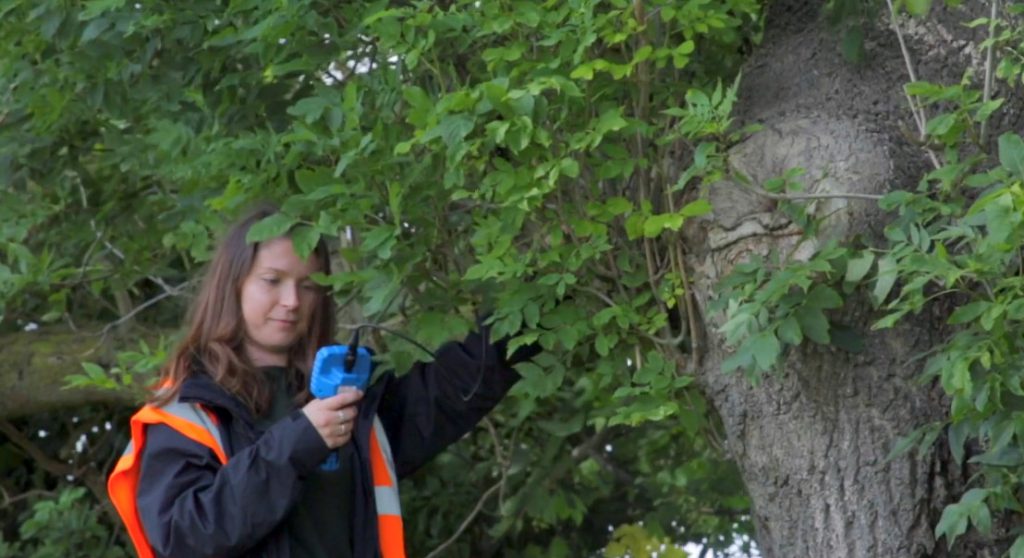Bat Habitat in Leicester and Wider Leicestershire
Best known as the home of the city of Leicester, the county of Leicestershire in the East Midlands is often regarded as a developed, urban location populated by towns, villages and cities such as Loughborough, Hinckley, Wigston, Melton Mowbray, Market Harborough, Oadby and Coalville. Even though Leicester is the largest built-up area in the region by population – estimated inhabitants currently surpassing the 400,000 mark – wider Leicestershire is in fact considered a rural county.
Made up of 300 settlements, Leicestershire sees around 80% of the land used for agricultural purposes. It differs massively from the city of Leicester, which is so expansive in population that it is classed as the largest by population in the entire East Midlands region, and the second highest built-up area by population (Nottingham) has more than 100,000 fewer inhabitants. As a consequence of the countless green areas in the county, workable habitat suitability emerges for a number of European protected species.
European legislation makes it a legal offence to pose harm in any form to an extensive selection of listed animals and plants. Whether a location has the climate, prey opportunities and habitat features depends on many different variables, but it is common for bats to appear. Before a developer will stand any chance of receiving planning permission on a development site where bats are or may be present, assurances will need to be retrieved by arranging a formal bat survey with our team.
Local Types of Bats
Looking specifically at Leicestershire, bats with proven occupancy in the county include the Brandt’s bat (Myotis brandti), Daubenton’s bat (Myotis daubentonii), Natterer’s bat (Myotis nattereri), common pipistrelle bat (Pipistrellus pipistrellus), Nathusius’ pipistrelle bat (Pipistrellus nathusii), soprano pipistrelle bat (Pipistrellus pygmaeus) and whiskered bat (Myotis mystacinus).
Protective Bat Societies and Groups
All bats situated within Leicester and broader Leicestershire are given protection by the Leicestershire and Rutland Bat Group. In addition to the local safeguarding that bats receive from various groups, bats across the country are universally protected by the Bat Conservation Trust (BCT), as are all animals under such regulators as Natural England. Both the Leicestershire and Rutland Bat Group and the Bat Conservation Trust (BCT) have the same goals, but with one localised and the other on a national scale.
The primary goals of the Leicestershire and Rutland Bat Group involve supporting the local community with information about bats and effective advice and assistance with bat issues, particularly if any residents find bats or bat roosts and need assistance. It also arranges informative talks and walks, keeps records of bat distribution and populations, and provides bat surveys over bat roost sites.
Necessary Survey Work Regarding Bats
Any time development sites have evidence that points towards the presence of roosting bats or the plans of development projects have the potential to impact bats, bat surveys will be an unavoidable requirement. Alternatively, an earlier ecology survey such as a PEA or EcIA will have prompted the need for further surveys to uncover more information. A preliminary roost assessment (PRA) ranks as the stage one bat survey and necessitates a bat ecologist making a site visit to inspect for signs of bats.
Factors that could suggest bat occupancy during a PRA or bat scoping survey include bat roosts, feeding remains, bat droppings, and natural or man-made elements that could act as viable habitats to support roosting bats. Confirmation that the ecological surveyors see no evidence of bats on the site will trigger a recommendation for planning consent to the local authority. An inability to rule out bats present, however, will lead the ecological consultants to undertake bat surveys that will retrieve additional information, known as bat emergence and re-entry surveys (BERSs).
Also titled bat activity surveys or dusk entry and dawn re-entry surveys, a BERS involves multiple registered consultants attending the site several times to analyse suspected entry and exit locations. Unlike a daytime survey or hibernation surveys, it can only be held at dusk and dawn between the months of May and September, where the ecologists will utilise specialist equipment such as static bat detectors to record bat calls and use the recovered data to gauge bat species and populations.
Bat reports are created immediately after all bat surveys to summarise the assessment process and outcomes from the ecological consultant’s findings, including the mitigation measures that are designed to ensure that the proposed works don’t disturb bats, enabling the planning project to continue. When all conditions of the local authorities have been met and the necessary bat scoping surveys and bat activity surveys have been undertaken, the developer should see no problem in obtaining a granted planning application.
Contact Arbtech for a Free Quote
Our years of experience in providing bat surveys and other types of ecology assessment to clients up and down the country have seen us dominate as the UK’s top ecological consultancy. All of our ecological surveys possess the training, qualifications and general know-how to assist with development projects by conducting bat surveys with the insight and expertise to support roosting bats while simultaneously satisfying your local council and the planning requirements they enforce.
Through ties to CIEEM, DEFRA and Natural England, the team at Arbtech has a finger on the pulse of the latest standards from all relevant regulators. You can even receive a free quote before you commit to our ecologists by giving us a call, completing a quote form, or visiting our contact page. When you’ve confirmed a suitable date for bat surveys on your development site, we can send one of our ecological consultants to complete the assessment, measure bat activity, address present bat species, rule out practices that could disturb bats or obstruct access, and secure planning permission for your project.


